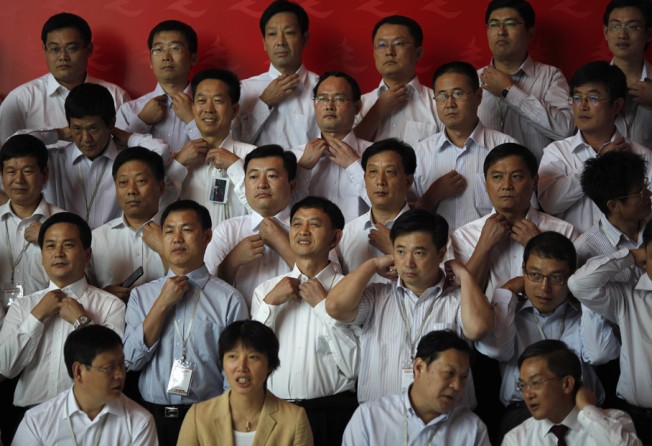Shanghai district taps private sector talent
Hiring of ‘outsider’ professionals may be first step to changing how cadres are picked

Shanghai has taken a small but significant step towards reforming the way cadres are selected. The government of a local district has reached outside the civil service system to appoint three professionals from the private sector to senior positions.
Fengxian district in the city's south has recruited a lawyer, an asset manager and a company executive to fill deputy director posts at the local justice bureau, economic planning agency and the science and technology committee respectively. District officials described the trial programme as an effort to "quench its thirst for professionals and talent".
It is the first time that a district government has filled government posts with so-called outsiders working in the private sector.
Two Shanghai municipal government officials told the Post the appointments were a baby step taken by the local government to test the waters, but they could have far-reaching significance. "The professionals are believed to be more efficient in handling policymaking and administrative matters. This could eventually help the government cut its payroll," one of the government officials said.
The three professionals, who have been given one-year contracts with the district government, won't be listed as official government employees. They must work no fewer than three days a week in government offices, according to People's Daily.
One Shanghai official said that if the trial were successful, certain administrative roles may in future be outsourced to professionals from the private sector.
For instance, the justice bureau's responsibility for reviewing lawyers' certificates could be outsourced to professionals who have a better understanding of a lawyer's job and the qualifications they need, he said.
"The impact will be minimal for now since only a few professionals have been recruited," said another Shanghai government official. "But tremendous changes could take place in future if the government were determined to deepen the reform."
"The short-term [one-year] contract shouldn't restrict these new cadres. Rather, they should boldly face problems and tackle them," Fengxian Communist Party boss Zhou Ping told the Oriental Morning Post in response to the move.
"The professionals should add vigour to the cadres' ranks in the district."
Under the trial, Fengxian will continue to hire three professionals every year on contracts of between six and 12 months.
In another example of shifting borders between the private and public sectors, the Shanghai municipal government has placed a number of government officials in management roles at state-owned companies, hoping they will gather valuable real-world economic experience.
In the past decade, a limited number of local government posts were opened up to applications from the general public via a so-called public recruitment campaign.
But this public hiring process has been criticised as being politics-for-show rather than a concrete measure to cut red tape, since most of the positions offered went to candidates who rose through the local bureaucracy.